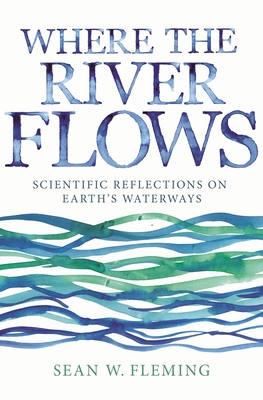Expedite your nonfiction book discovery process with Readara interviews, summaries and recommendations, Broaden your knowledge and gain insights from leading experts and scholars
In-depth, hour-long interviews with notable nonfiction authors, Gain new perspectives and ideas from the writer’s expertise and research, Valuable resource for readers and researchers
Optimize your book discovery process, Four-to eight-page summaries prepared by subject matter experts, Quickly review the book’s central messages and range of content
Books are handpicked covering a wide range of important categories and topics, Selected authors are subject experts, field professionals, or distinguished academics
Our editorial team includes books offering insights, unique views and researched-narratives in categories, Trade shows and book fairs, Book signings and in person author talks,Webinars and online events
Connect with editors and designers,Discover PR & marketing services providers, Source printers and related service providers

Where the River Flows: Scientific Reflections on Earth's Waterways
Science > Earth Sciences - Hydrology
- Princeton University Press
- Paperback
- 9780691191829
- 8.2 X 5.1 X 0.6 inches
- 0.6 pounds
- Science > Earth Sciences - Hydrology
- (Single Author) Asian American
- English
Readara.com
Book Description
The vital interconnections that rivers share with the land, the sky, and us
Rivers are essential to every aspect of civilization, from brewing beer to building computers, yet how many of us understand how they work? Where the River Flows takes you on a journey along our planet's waterways, providing a scientist's reflections on the profound interrelationships that rivers have with landscapes, ecosystems, and societies.
Drawing on examples ranging from backyard creeks to evocative rivers like the Mississippi, Yangtze, Thames, and Congo, Sean Fleming looks at rivers through the lens of physics, using abundant graphics and intuitive analogies to explore surprising connections between watershed hydrology and the world around us. He explains how river flows fluctuate like stock markets, what digital rainbows tell us about climate change and its effects on water, how building virtual watersheds in silicon may help avoid water wars, and more. Along the way, you'll see what communications theory, fractals, artificial life, and other exciting scientific ideas reveal about the life of rivers.
Author Bio
I am a mid-career scientist, manager, and communicator with professional experience spanning the public, private, academic, and nonprofit sectors in the US, Canada, Mexico, and the UK. My research interests focus on applied data science and predictive analytics in the context of environmental science and hydrometeorological forecasting.
Originally trained as a geophysicist with a solid grounding in both digital signal processing and bottom-up process physics, my attention quickly turned to analysis and modeling of complex systems in hydrology, cryospheric science, and climate, and subsequently to data analytics and machine learning in general, which I have been working with for close to two decades. I am particularly intrigued by the integration of both underlying process physics and experiential human expert knowledge into data-driven quantitative analysis and prediction algorithms, particularly AI, and my work emphasizes bridging the gap between theory and practice.
Most of my projects involve building and managing multi-disciplinary, multi-institutional, and frequently international teams.
The work that my teams and I have completed has been extensively vetted in the peer-reviewed research literature and at conferences and workshops across North America and Europe. I have also routinely performed high-profile, senior-level advisory activities, such as serving as an associate editor for several journals including Water Resources Research, on the World Meteorological Organization (WMO) Commission for Hydrology, and as an invited expert reviewer of several Intergovernmental Panel on Climate Change (IPCC) reports.
Public outreach and engagement on science is also a particular point of interest for me. My popular science book, Where the River Runs: Scientific Reflections on Earth's Waterways, was published in spring 2017 by Princeton University Press (PUP) (http://press.princeton.edu/titles/10978.html) and has received positive coverage in Nature, Science News, and The Toronto Metro, among others. I've also given public lectures and book signings at the Smithsonian Institution in Washington DC and at Science Pub events in Corvallis (OSU), Bend (OSU-Cascades), and Portland (OMSI) and a live radio interview with an NPR affiliate.
My writing has additionally appeared on the PUP blog and in Scientific American and Wired.
My primary professional role is to serve as the technical lead for applied R&D at the US Department of Agriculture's National Water and Climate Center in Portland, Oregon, where I am responsible for providing management, vision, and multi-agency relationship-building and gap-bridging to practical research and development efforts around environmental prediction and other operational water and climate tasks across the American West.
Topic areas span seasonal water supply forecasting, space-based and airborne remote sensing of snow and other environmental parameters, transitioning machine learning into NRCS operations through pragmatic technical innovation and extensive client consultation, obtaining a better understanding of the details of climate variability and change impacts to Western water, and others. In my additional role as affiliate OSU faculty in CEOAS, and also in the Water Resources Graduate Program (WRGP), my function is to serve on the supervisory committees of graduate students, collaborate with OSU faculty on applied research, and provide practical industry perspectives to university research.
- Education
- B.Sc., Geophysics, University of British Columbia, 1994
M.S., Geophysics, Oregon State University, 1997
M.S., Geology (major), Civil Engineering (minor), Oregon State University, 1998
Ph.D., Geophysics, University of British Columbia, 2004
Source: Oregon State University
Videos


Community reviews
No Community reviews

